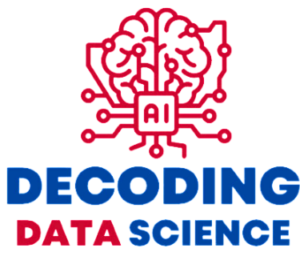SQL functions are a powerful tool that every developer, data analyst, and data scientist should have in their toolkit. Functions are used to perform operations on data stored in a database, such as calculating sums, finding minimum and maximum values, and manipulating text. In this article, we’ll explore the basics of SQL functions, including how they work, why they are useful, and some of the most common functions you’ll encounter.
What are SQL functions?
In SQL, a function is a piece of code that takes one or more input values, performs a specific operation, and returns a result. Functions can be used to manipulate data in a variety of ways, such as converting data types, performing calculations, and manipulating strings. Functions can be used in a SELECT statement to retrieve data from a database and apply functions to that data.
How do SQL functions work?
SQL functions are used to manipulate data in a database. They take input values, perform an operation on them, and return a result. Functions can be used in a variety of ways, including in SELECT statements to retrieve data from a database and apply functions to that data.
Why are SQL functions useful?
SQL functions are a powerful tool for manipulating data stored in a database. They can be used to perform calculations, convert data types, and manipulate strings. Functions can also be used to automate complex calculations and processes, saving time and reducing the risk of errors.
Common SQL Functions
There are many different SQL functions, but some of the most common include:
1. Aggregate Functions
Aggregate functions are used to perform calculations on a set of values and return a single value. Some of the most common aggregate functions include:
- SUM: Calculates the sum of a set of values.
- AVG: Calculates the average of a set of values.
- COUNT: Counts the number of values in a set.
- MIN: Finds the smallest value in a set.
- MAX: Finds the largest value in a set.
2. String Functions
String functions are used to manipulate text data. Some of the most common string functions include:
- CONCAT: Concatenates two or more strings together.
- SUBSTRING: Returns a specified portion of a string.
- REPLACE: Replaces a specified portion of a string with another string.
- UPPER: Converts a string to uppercase.
- LOWER: Converts a string to lowercase.
3. Date Functions
Date functions are used to manipulate date and time data. Some of the most common date functions include:
- DATE: Returns the date portion of a date/time value.
- DAY: Returns the day of the month from a date value.
- MONTH: Returns the month from a date value.
- YEAR: Returns the year from a date value.
- NOW: Returns the current date and time.
Best Practices for Using SQL Functions
When using SQL functions, there are some best practices you should follow to ensure that your code is efficient and effective:
- Use functions sparingly: Overuse of functions can make your code harder to read and understand. Use functions only when necessary.
- Use the most efficient function for the task: Different functions can perform the same task in different ways. Choose the function that is the most efficient for the task at hand.
- Use the appropriate data type: Functions can behave differently depending on the data type of the input value. Be sure to use the appropriate data type for the function you are using.
- Test your code: Always test your code to ensure that it is working as expected. Use test data to ensure that your code is handling edge cases correctly.
Conclusion
SQL functions are a powerful tool that can be used to manipulate data stored in a database. By understanding how functions work, why they are useful, and some of the most common functions available, you can begin to incorporate them into your own SQL code. Remember to follow best practices when using functions, and always test your code to ensure that it is working as expected.
FAQs
- What are the different types of SQL functions?
SQL functions can be grouped into three categories: aggregate functions, string functions, and date functions.
- Can I create my own SQL functions?
Yes, you can create your own SQL functions using the CREATE FUNCTION statement.
- Are SQL functions portable across different database systems?
No, SQL functions may differ between database systems. It is important to check the documentation for the specific database system you are using.
- Can SQL functions be used in conjunction with other SQL statements?
Yes, SQL functions can be used in conjunction with other SQL statements such as SELECT, INSERT, UPDATE, and DELETE.
- Are SQL functions case-sensitive?
It depends on the specific function and the database system being used. Some functions are case-sensitive, while others are not. Check the documentation for the specific function and database system to determine if it is case-sensitive.
Ready to level up your data skills? Enroll in our SQL for Data Science course today and gain the knowledge and expertise needed to manage and manipulate databases with confidence. Start your learning journey now!
If you’re looking to jumpstart your career as a data analyst, consider enrolling in our comprehensive Data Analyst Bootcamp with Internship program. Our program provides you with the skills and experience necessary to succeed in today’s data-driven world. You’ll learn the fundamentals of statistical analysis, as well as how to use tools such as SQL, Python, Excel, and PowerBI to analyze and visualize data. But that’s not all – our program also includes a 3-month internship with us where you can showcase your Capstone Project.

Pretty! This was a really wonderful post. Thank you for your provided information.